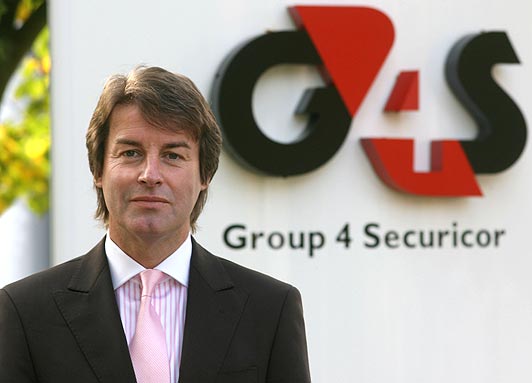
Nick Buckles, the chief executive of security firm G4S, will go before MPs later to explain why his company was unable to provide the Olympics staff it promised.
Nick Buckles has already apologized after 3,500 extra troops had to be deployed to meet the firm’s shortfall.
Culture Secretary Jeremy Hunt said it was no time for a “witch-hunt” but “contingency plans” were in place if G4S further failed to deliver.
It has emerged police have also helped fill gaps left by the company.
Metropolitan Police Assistant Commissioner Chris Allison, the national Olympic security co-ordinator, said that the “basic plan” for the Games remained “exactly the same”, albeit with “a different mix of people”.
“I’m satisfied that we have got a very strong partnership – a group of people – who are working together with one goal, and that is to make sure the Olympics pass off safely and securely,” he said.
“In the event of a major incident happening, everybody understands that the police will take over and run that major incident while supported by everybody else,” he added.

Theresa May told the Commons on Monday that G4S had “repeatedly” promised they would exceed targets.
Nick Buckles, who is due to appear before the Commons Home Affairs Select Committee, has said he is “bitterly disappointed” at his company’s failure to meet the terms of its contract.
The company, by its own admission, stands to lose up to £50 million ($80 million) on the contract, worth a total of about £280 million ($445 million), after being unable to provide the 10,000 staff it had been contracted to deliver.
Labour MP David Winnick, who sits on the MPs’ committee, said he wanted to know why G4S had not told the authorities earlier what was going on.
“It’s a shambles and it’s unfortunate to say the least,” he said.
Culture Secretary Jeremy Hunt said the government had “moved very quickly” when it learned of the company’s staffing issues.
“We would have been failing in our job as ministers if a contract had gone wrong and we didn’t have a back-up plan that worked.”
He said they would continue to monitor the contract.
Asked if it might be necessary to call on further troops, he replied: “Of course if G4S don’t deliver what they now say they can provide, we have contingency plans.”
The Ministry of Defence has confirmed army officials have met G4S over security.
But a Ministry of Defence spokesman said: “Olympic security remains a civilian and police-led operation which has not changed.
“For many months the MoD has been working closely with G4S with military personnel embedded as Olympic security plans have developed. As you would expect, the level of liaison has increased as the Games has drawn closer and the military contribution has increased.”
Police meanwhile have had to deploy extra officers at short notice from eight UK forces to do Olympic security work after the company’s staff failed to turn up to venues.
G4S said security was tightened at venues before staff was assigned, but that this was being rectified over the “coming days” and should lead to the withdrawal of police from roles assigned to private security.
Greater Manchester Police had to deploy officers to provide security at a hotel in Salford where four Olympic football teams will stay – after only 17 of an expected 56 G4S staff turned up for work.
In the Commons on Monday the home secretary reiterated the government only knew on Wednesday that there would not be enough G4S security guards and had reacted quickly.
In her statement to MPs, Theresa May denied the company had “deliberately deceived” the government, insisting the firm’s problem was “workforce supply and scheduling”.
The prime minister’s official spokesman said David Cameron was involved in the decision to deploy extra soldiers.
Heathrow airport had its busiest day ever on Monday as Olympic athletes and officials started arriving from 50 countries. The airport handled nearly a quarter of a million passengers.
Those arriving were the first to use dedicated Games Lanes on the M4.